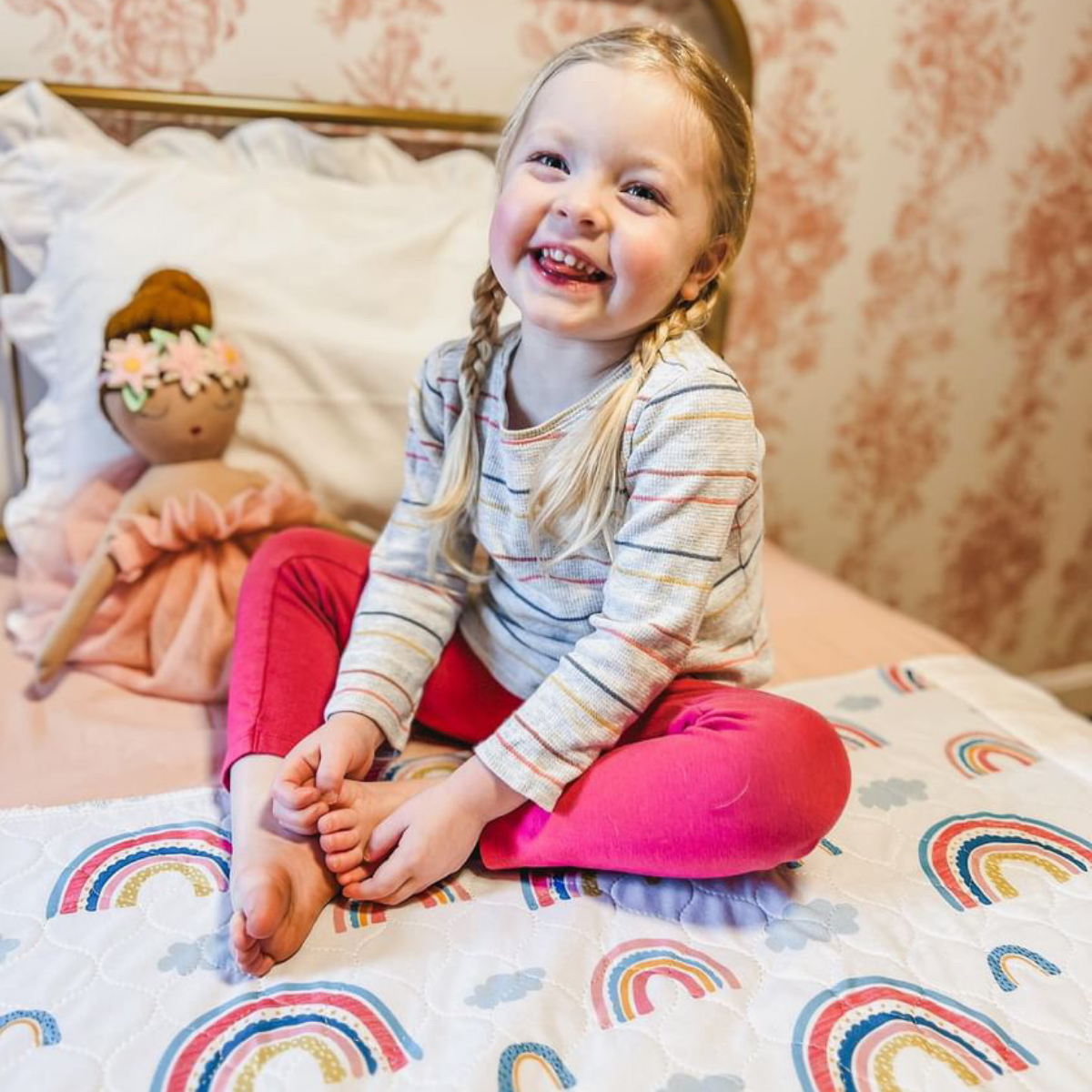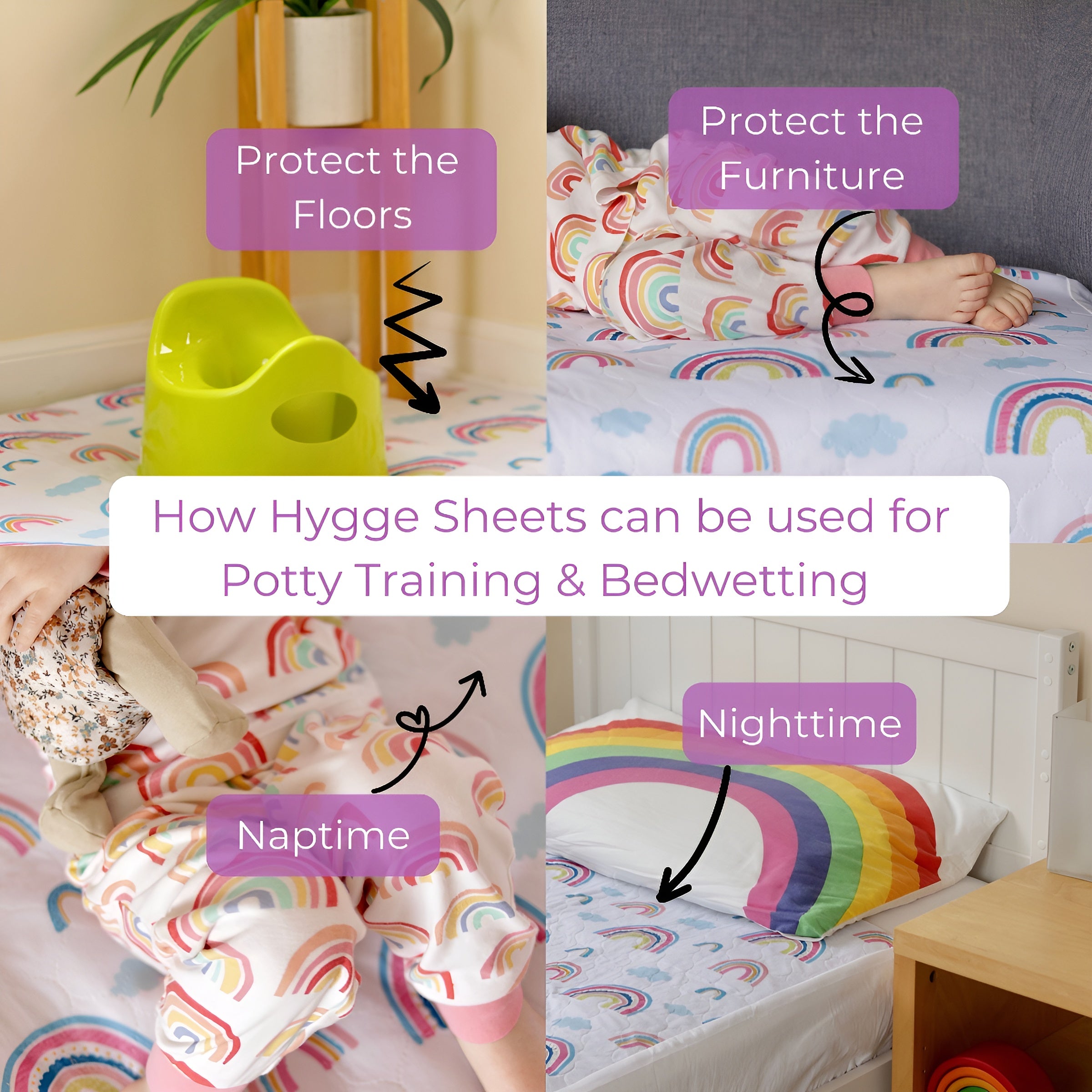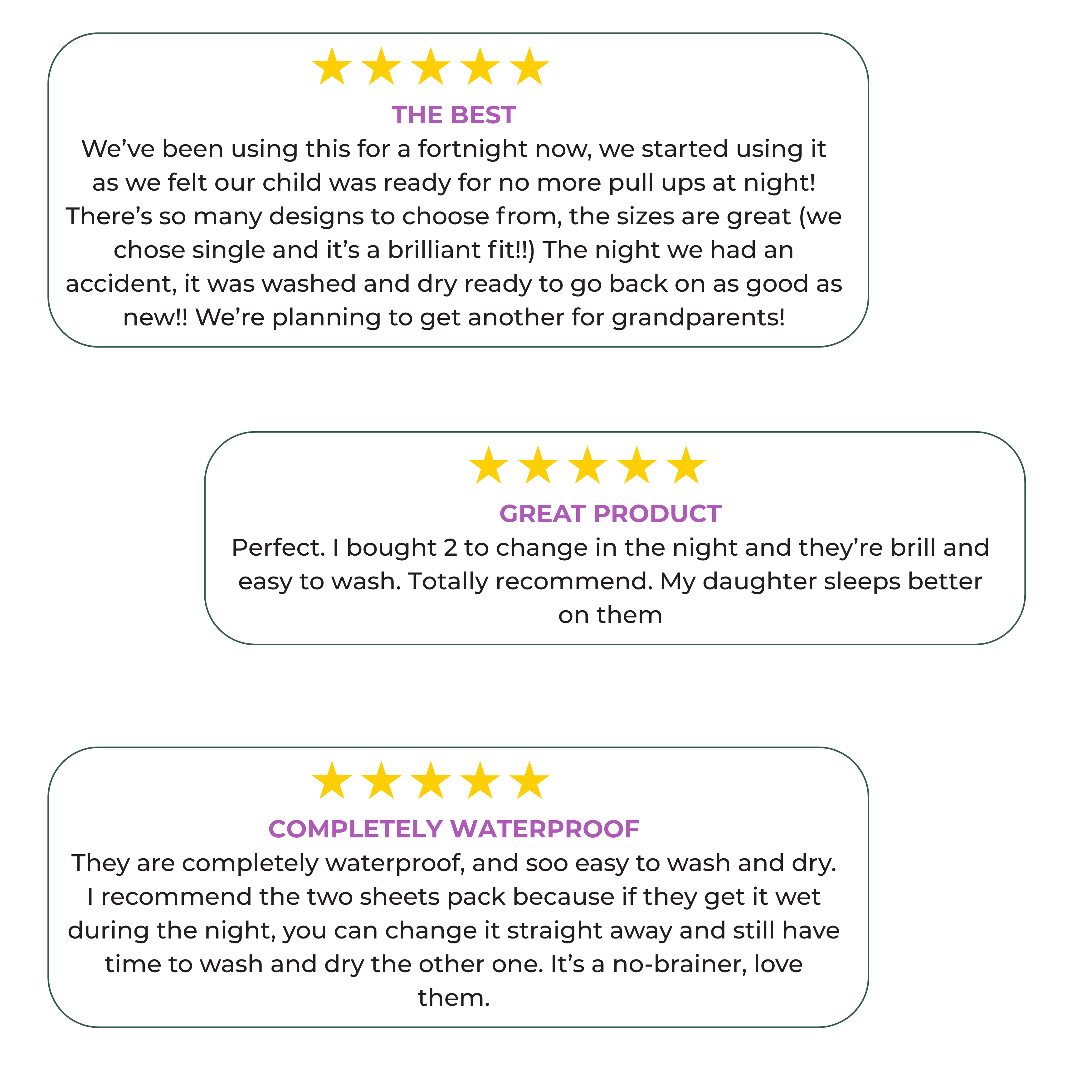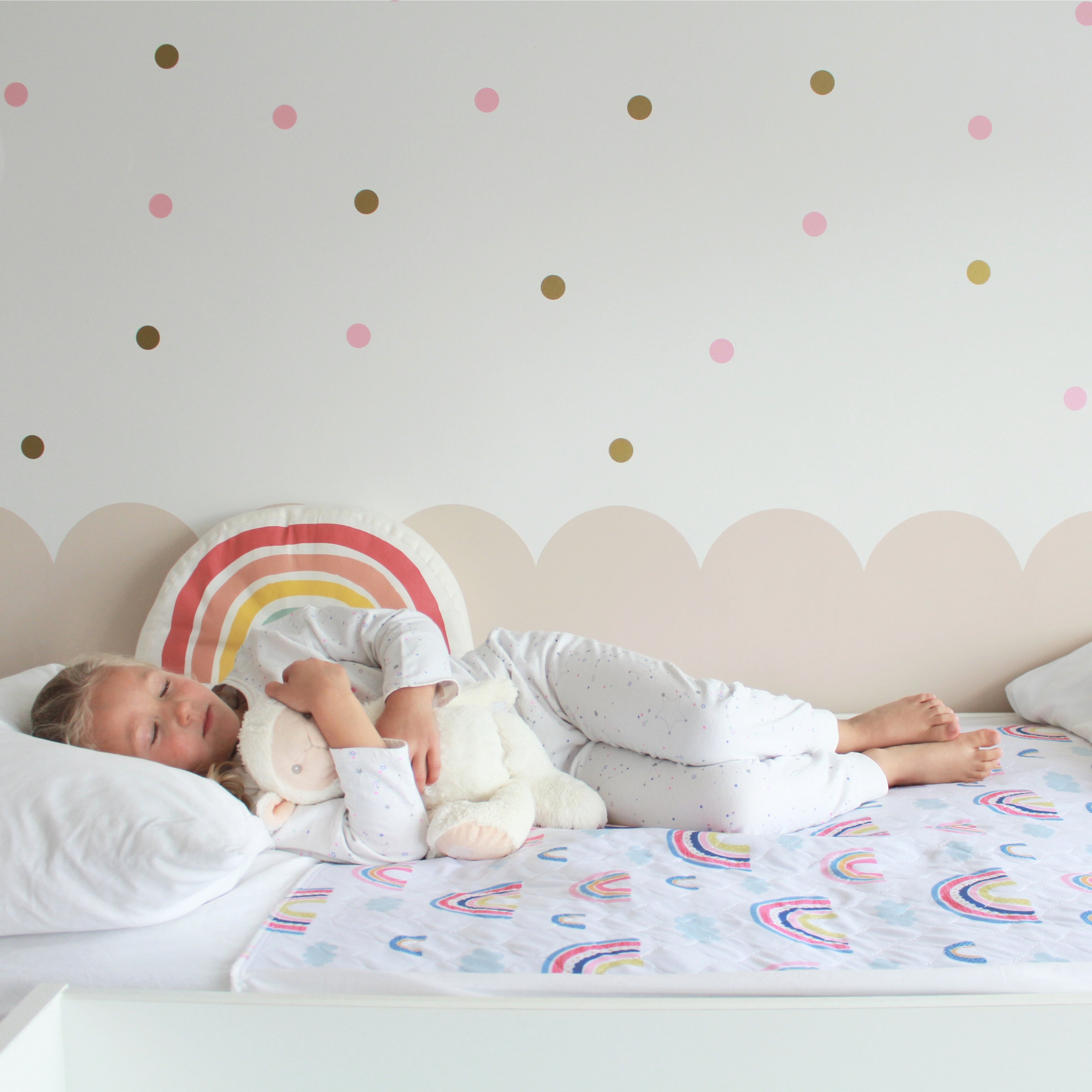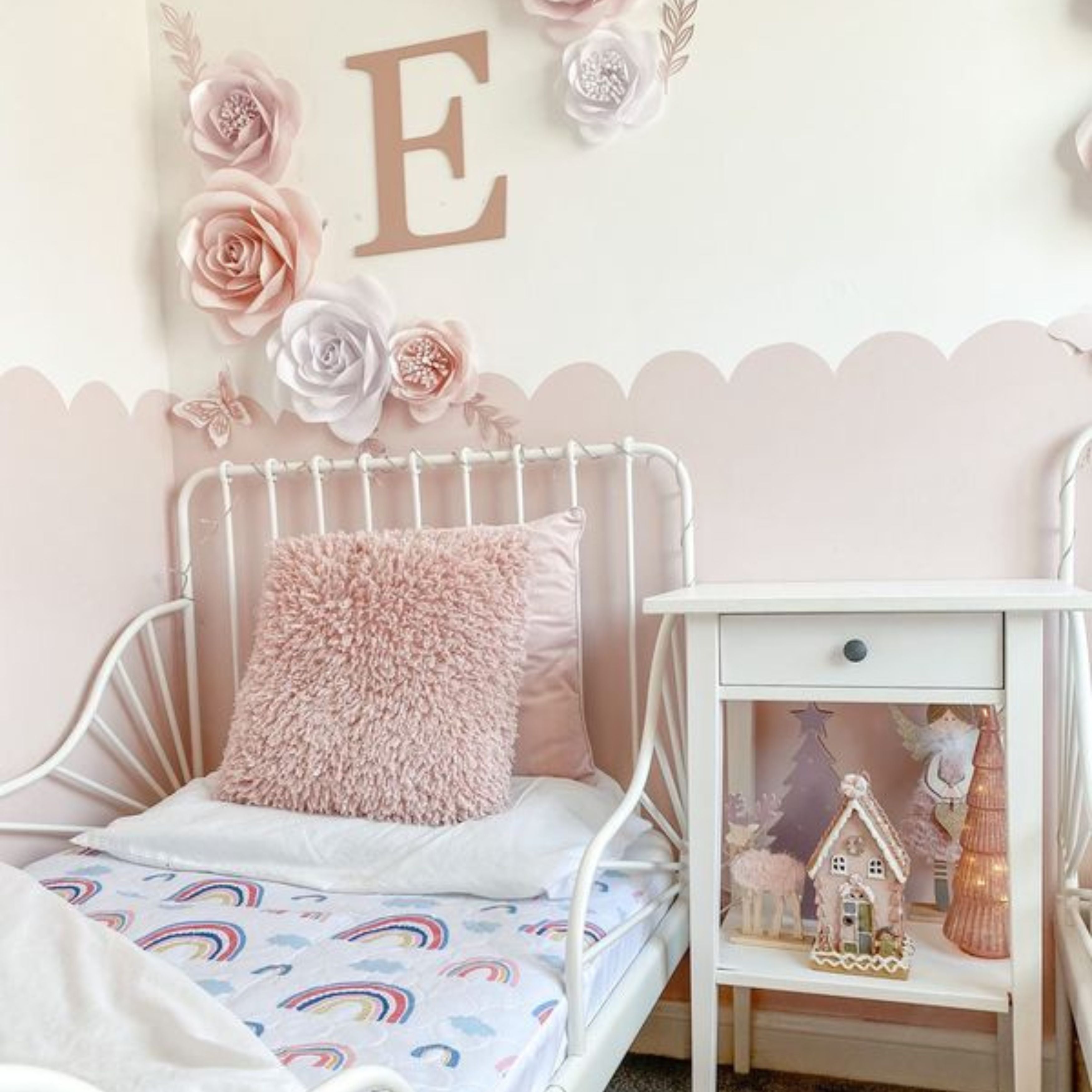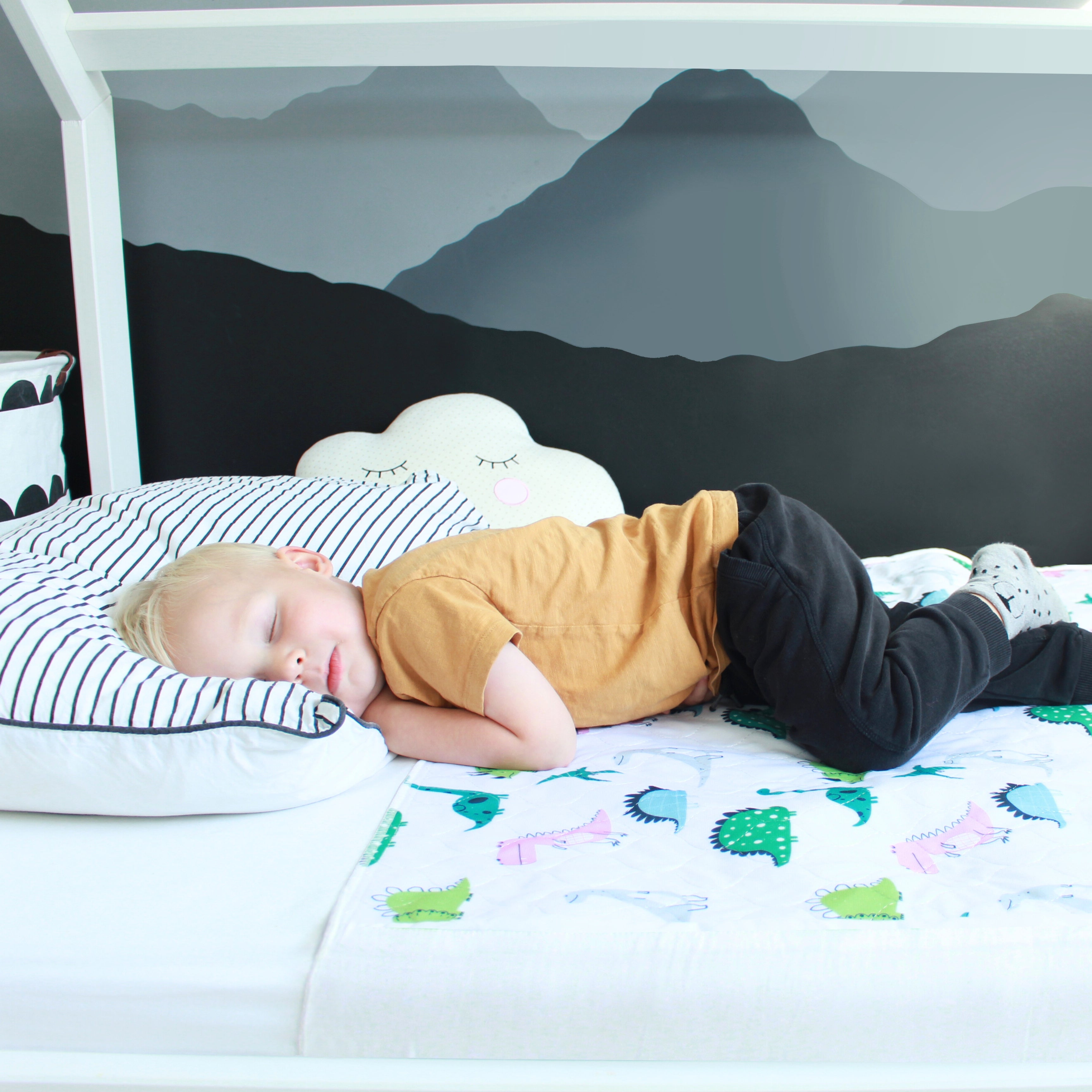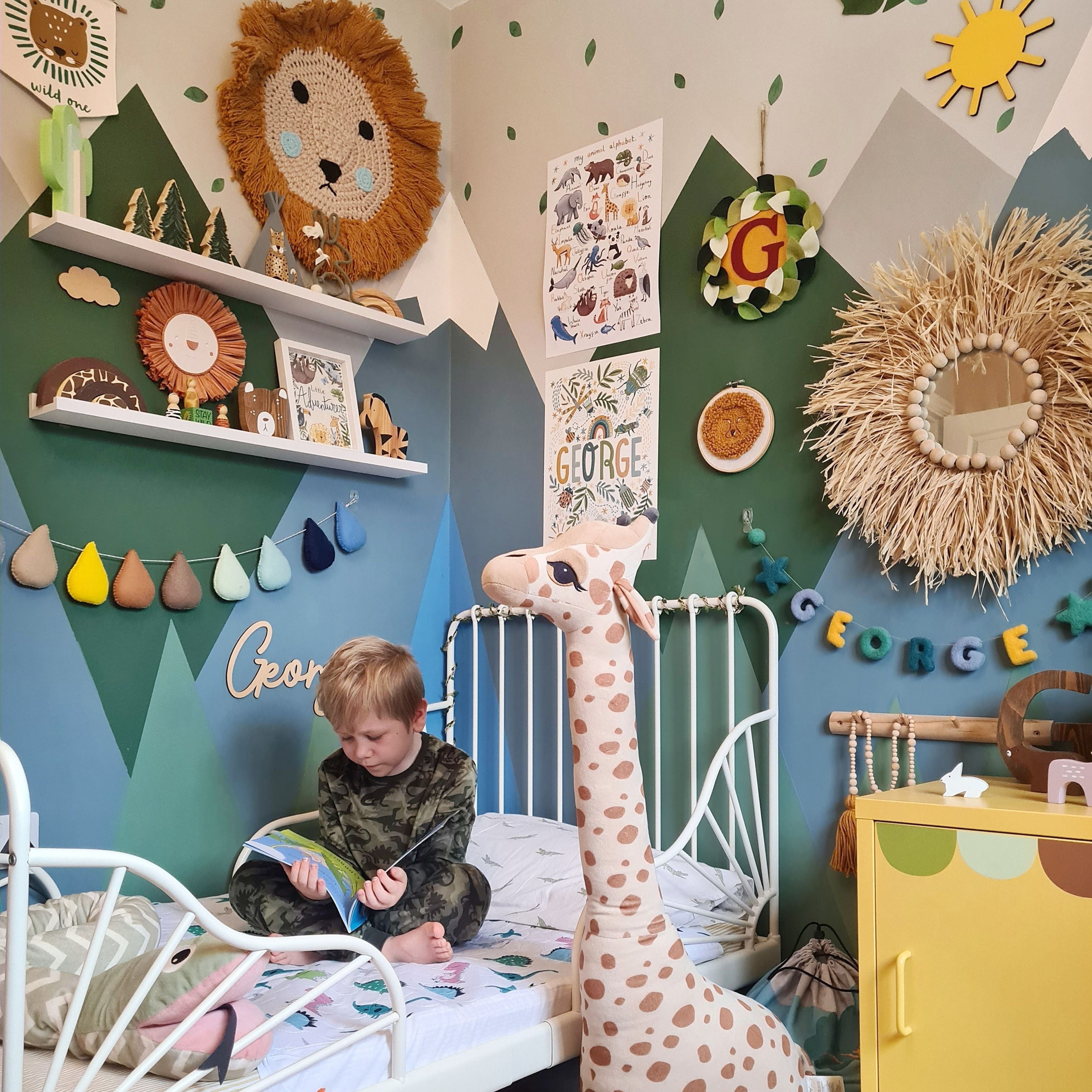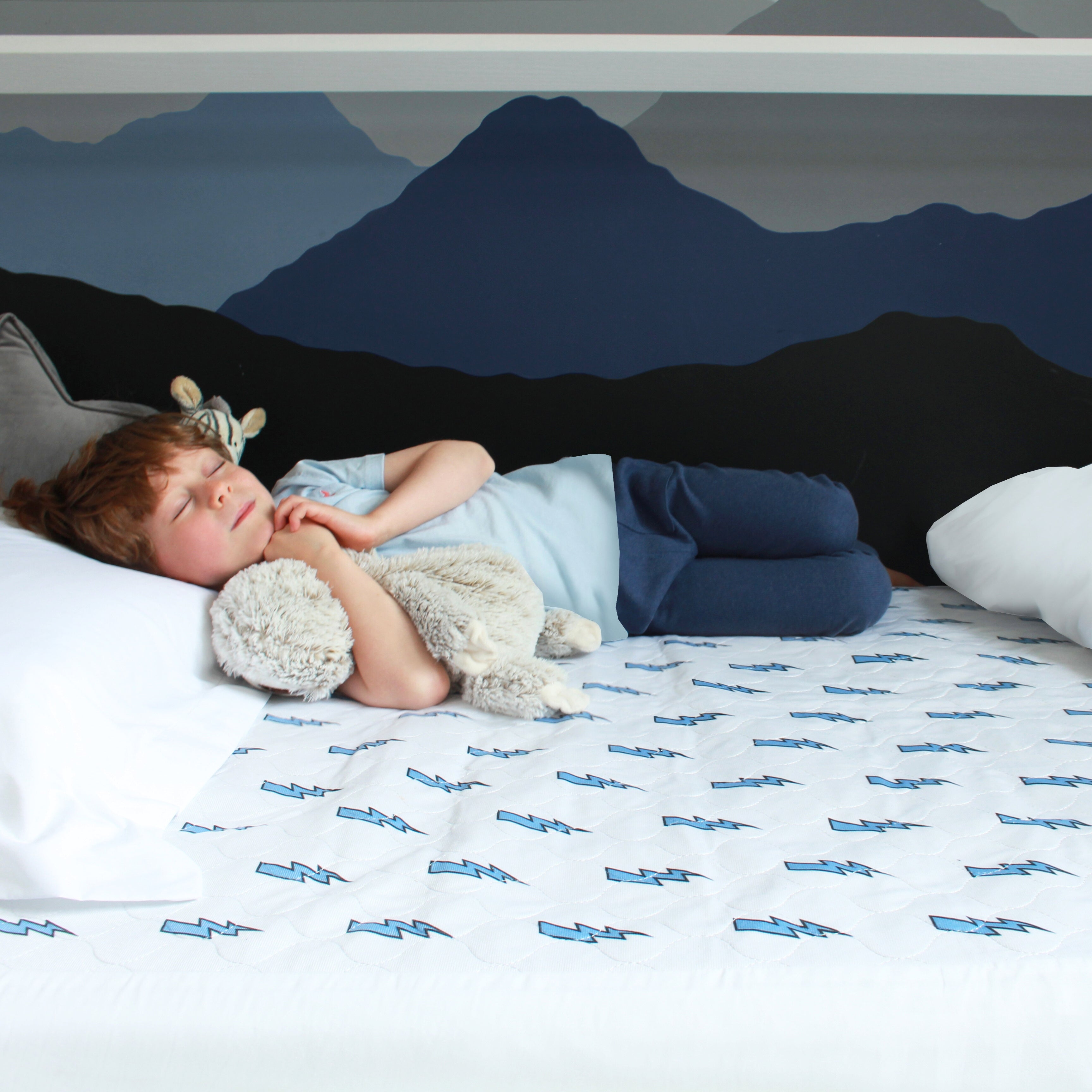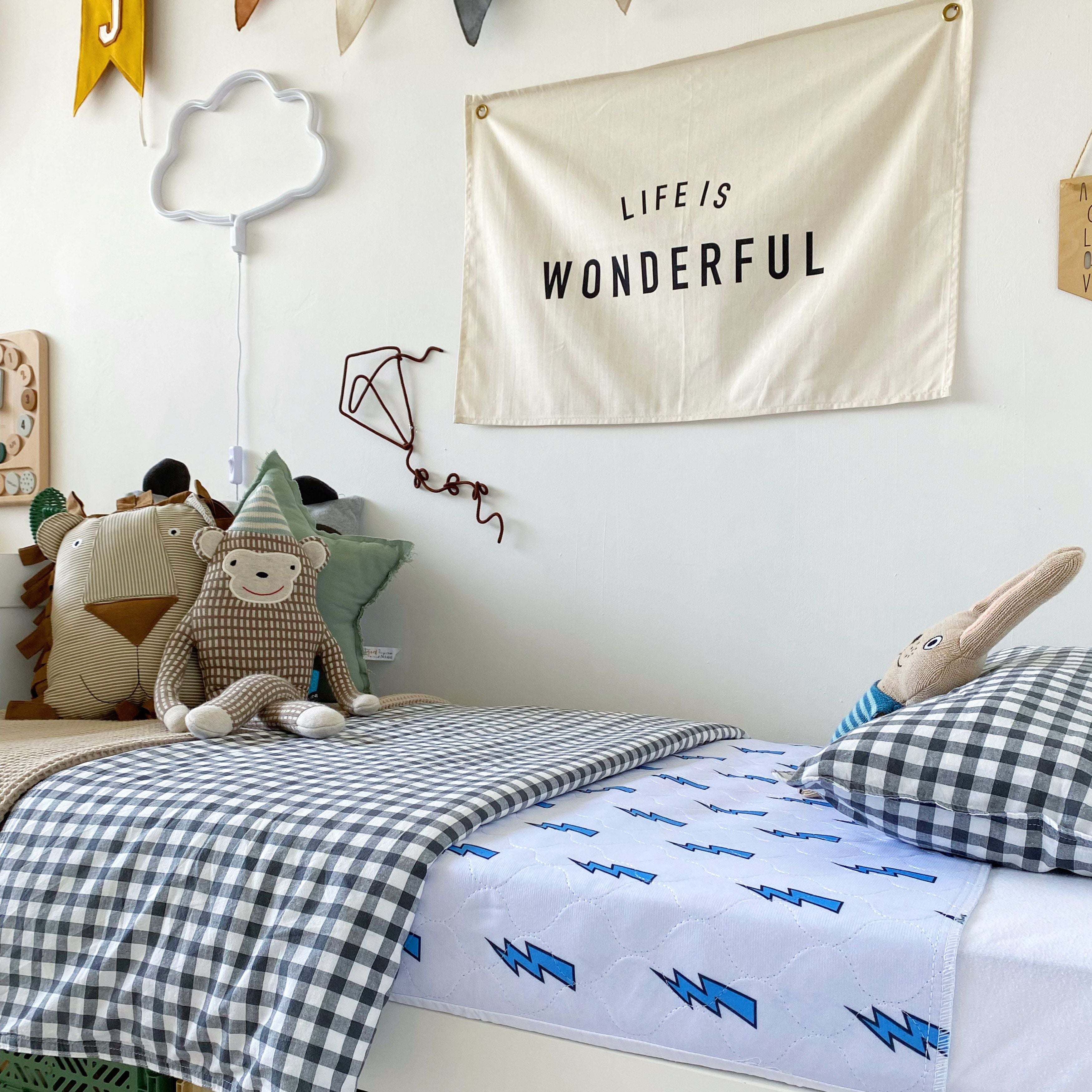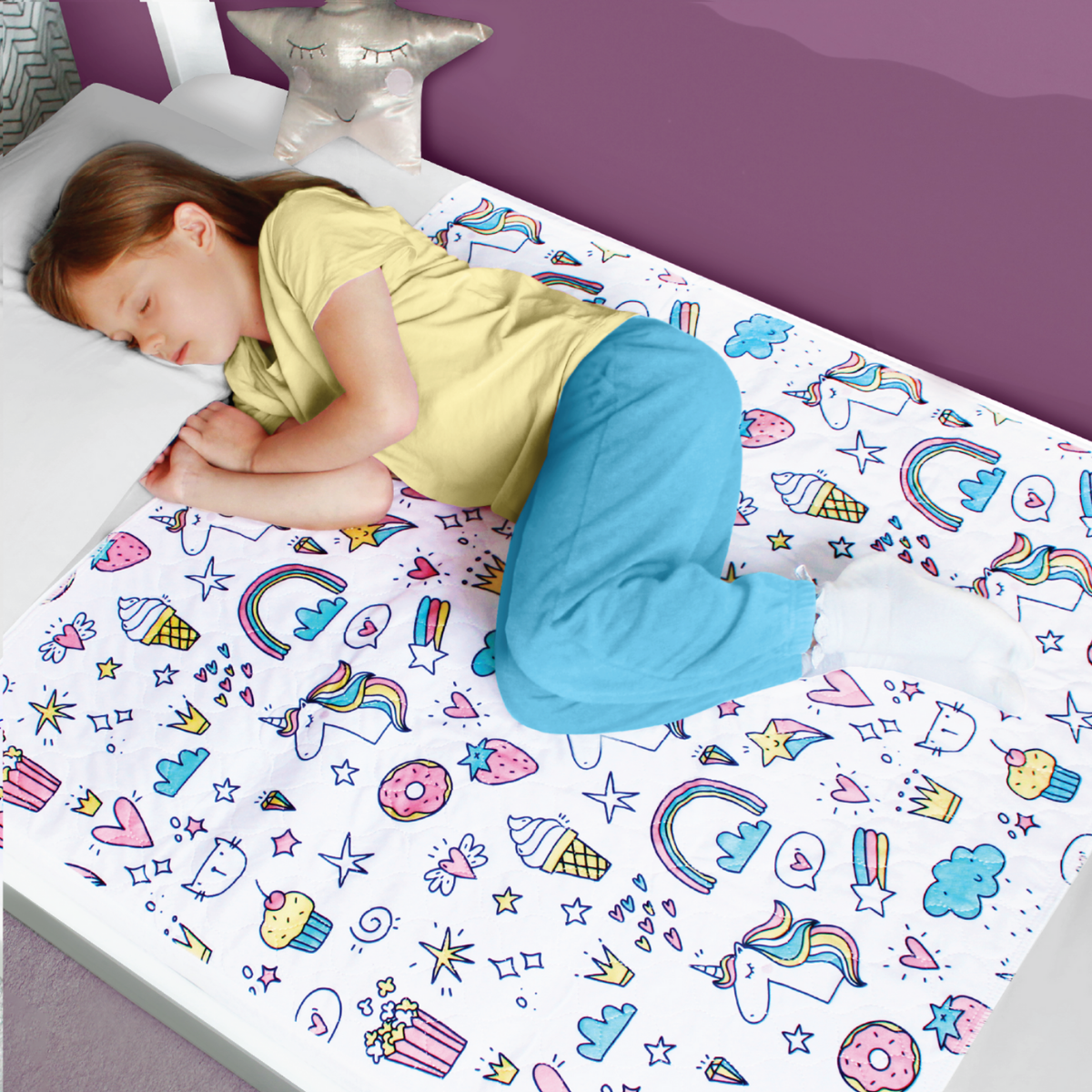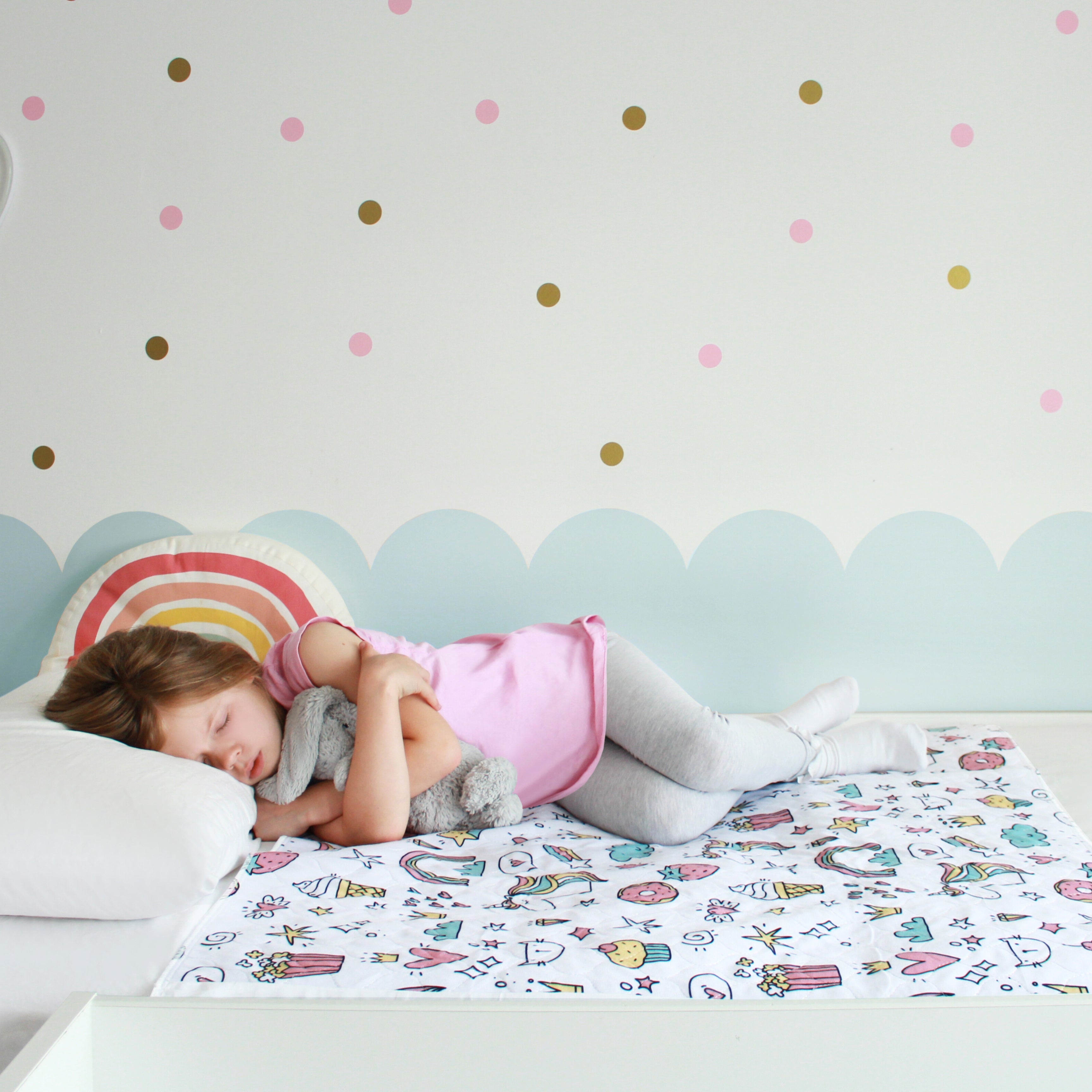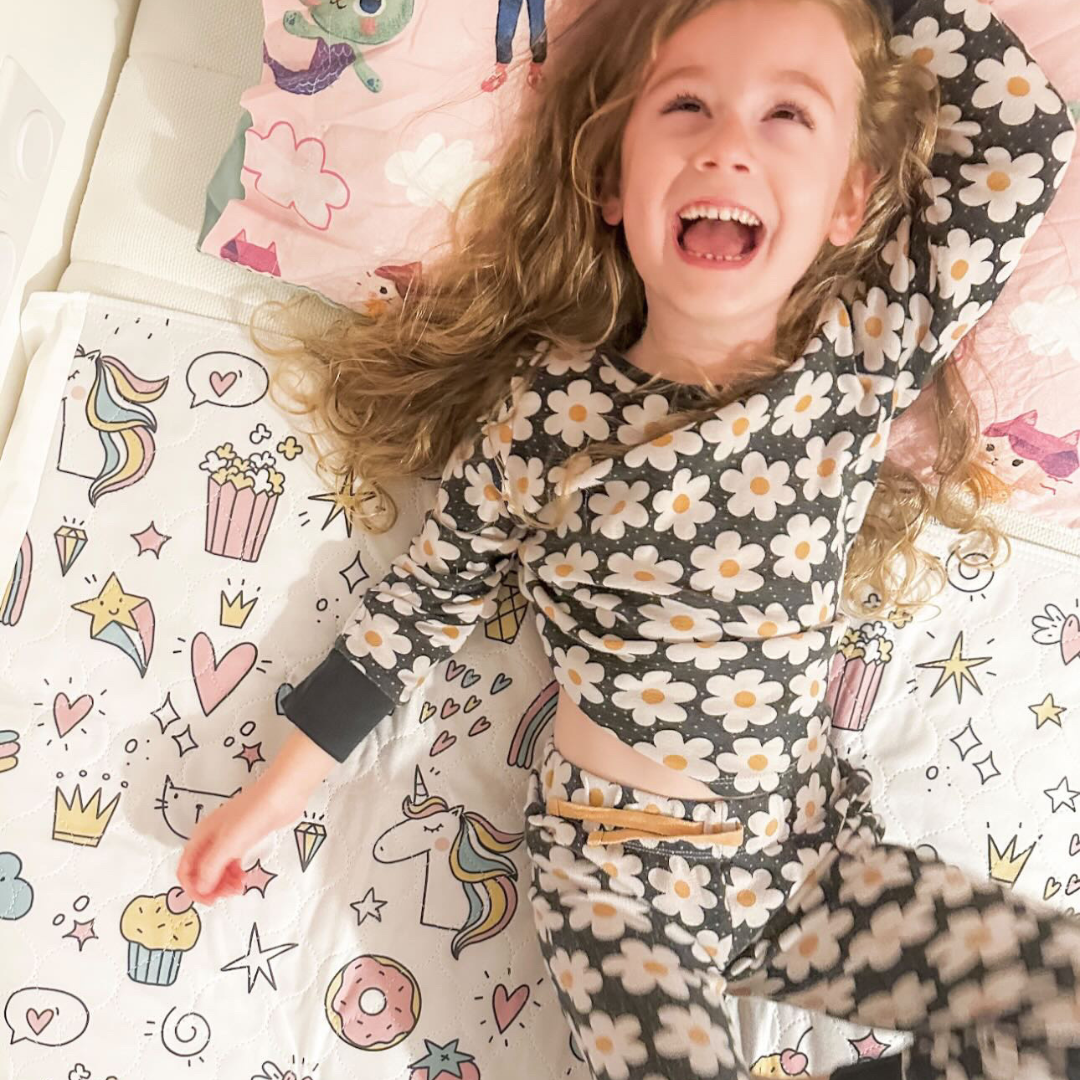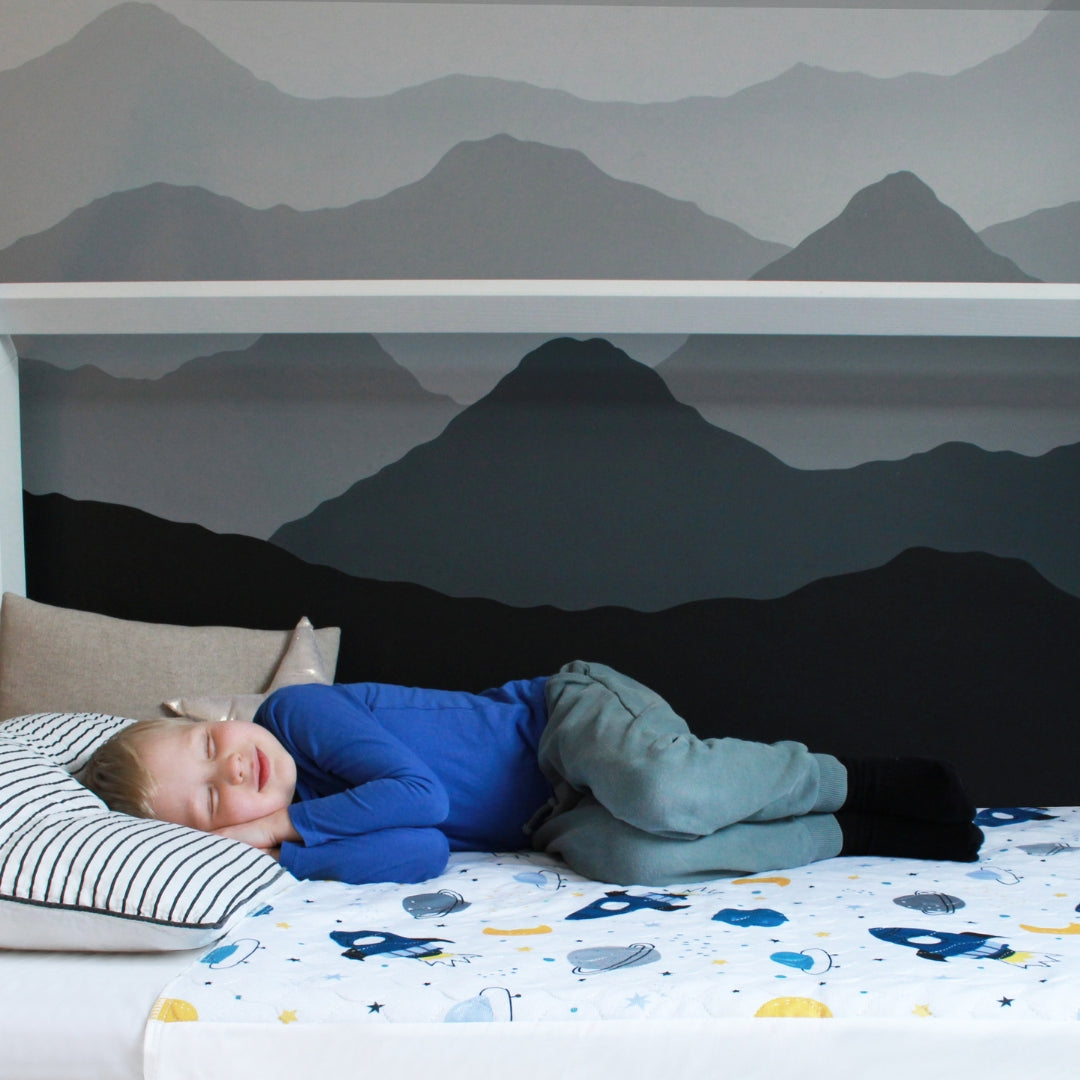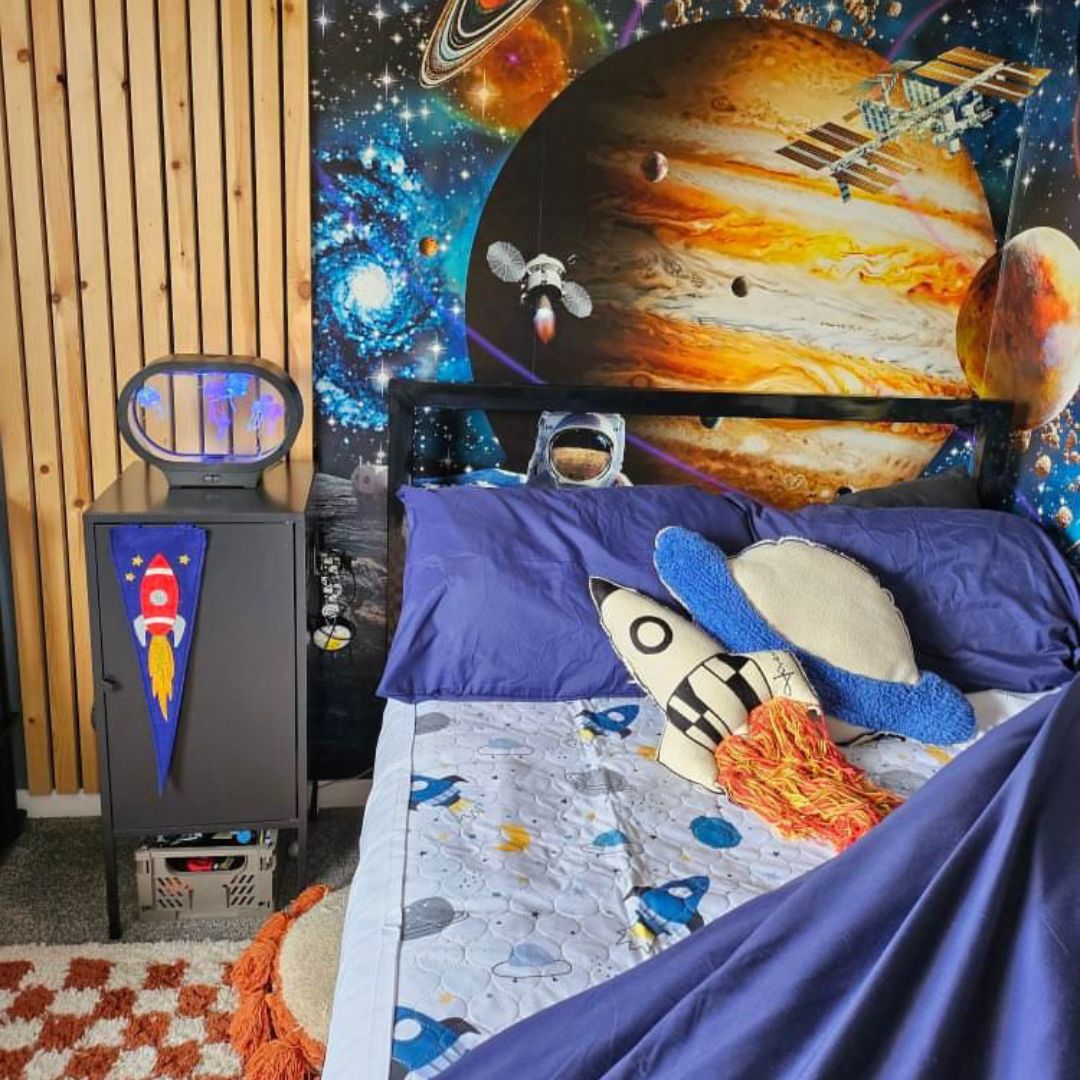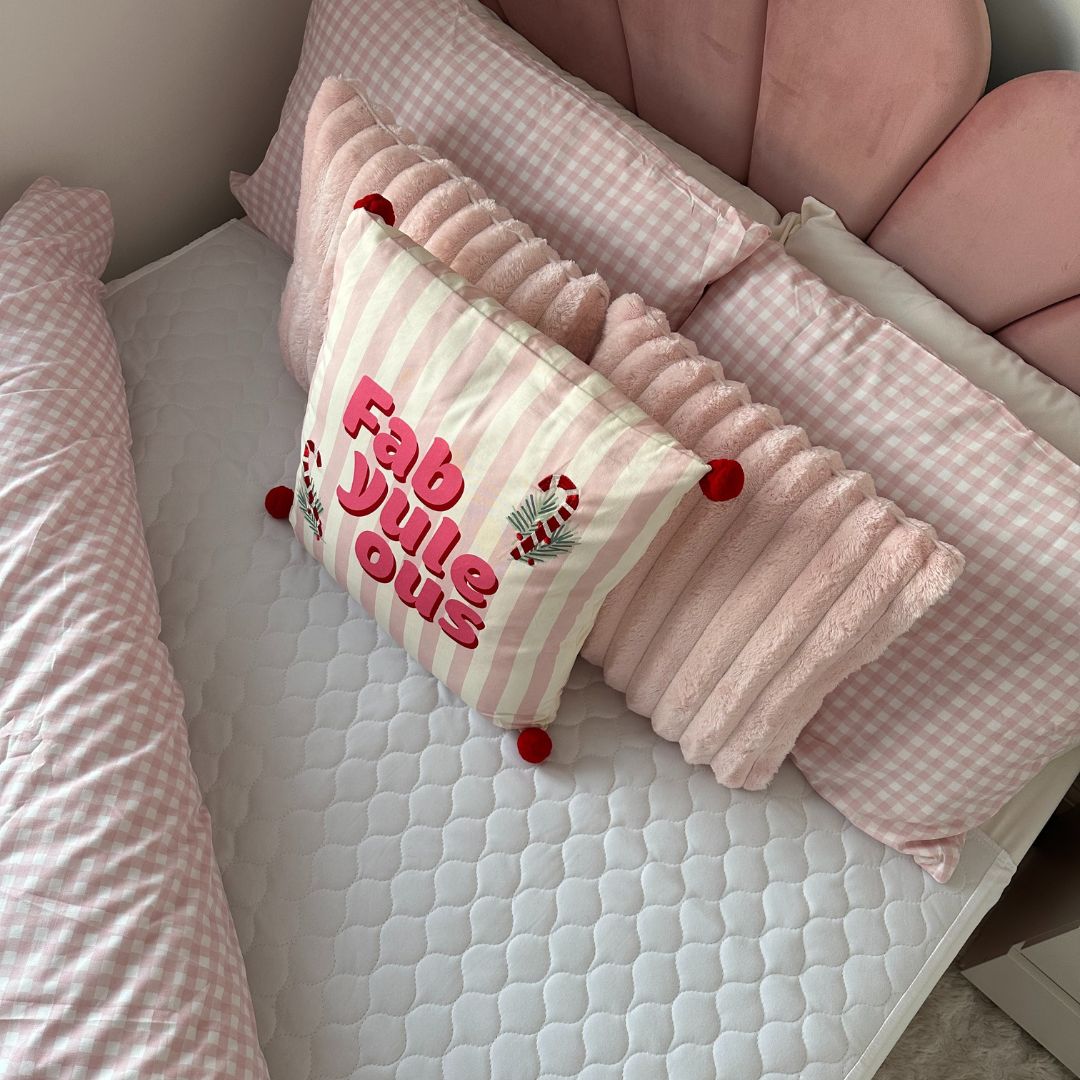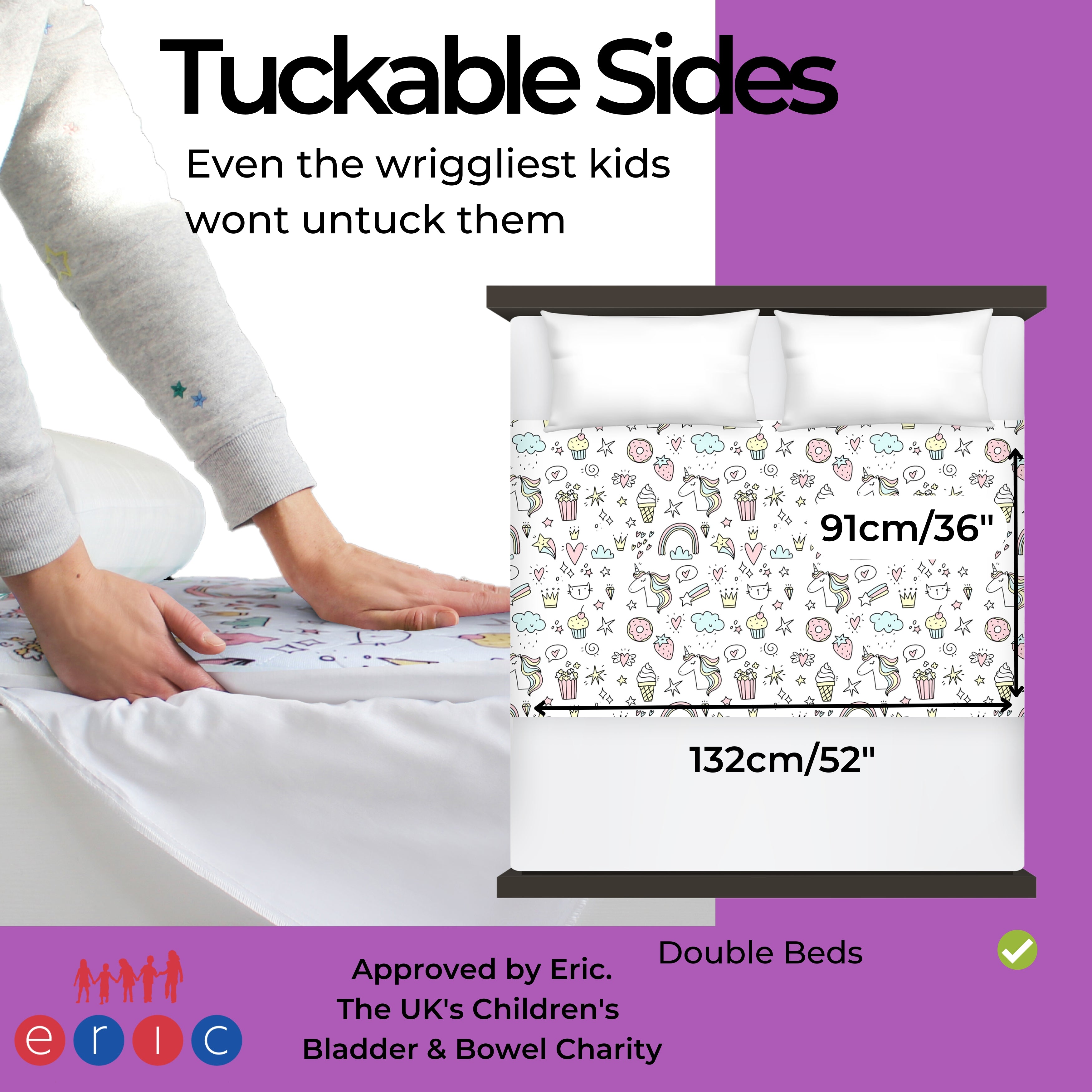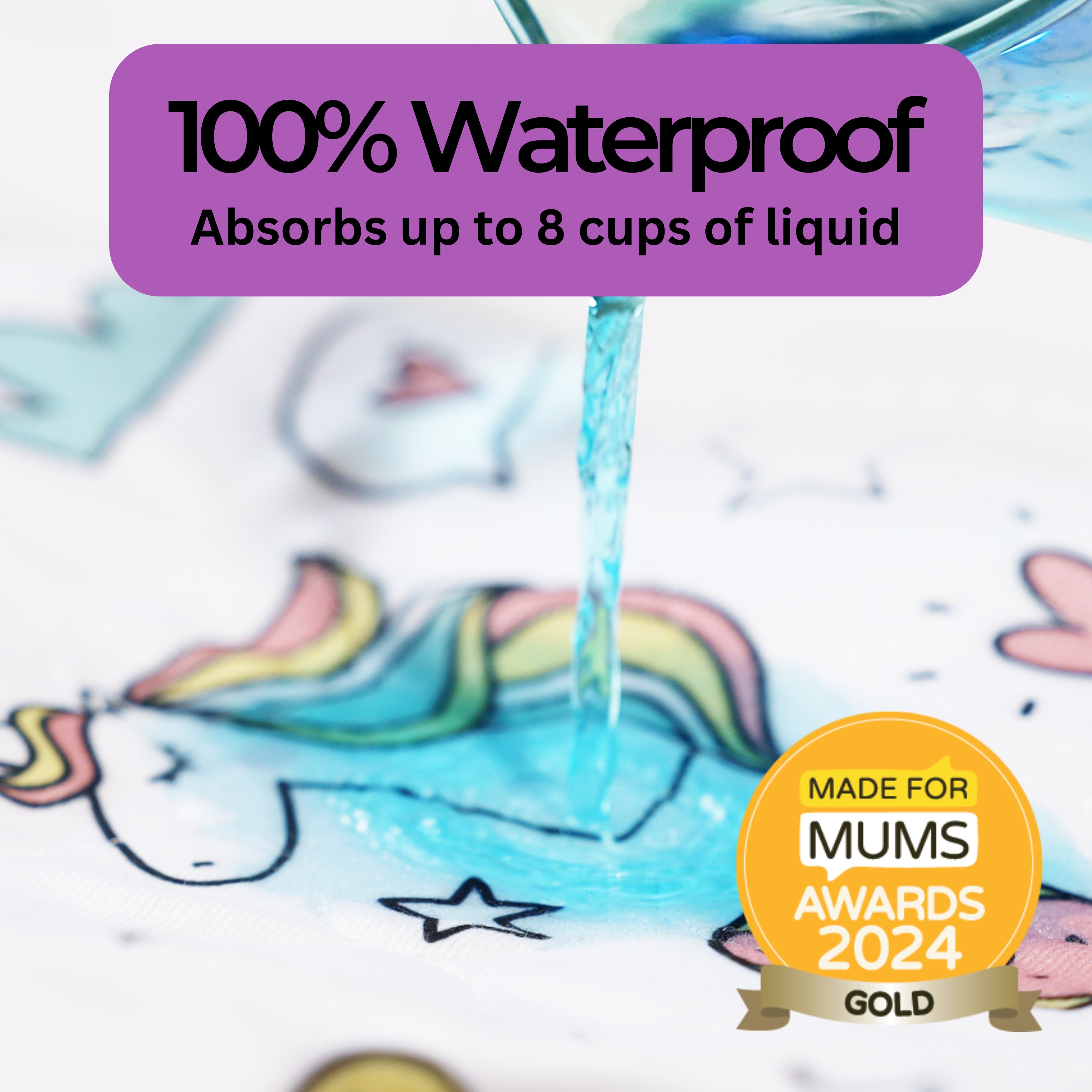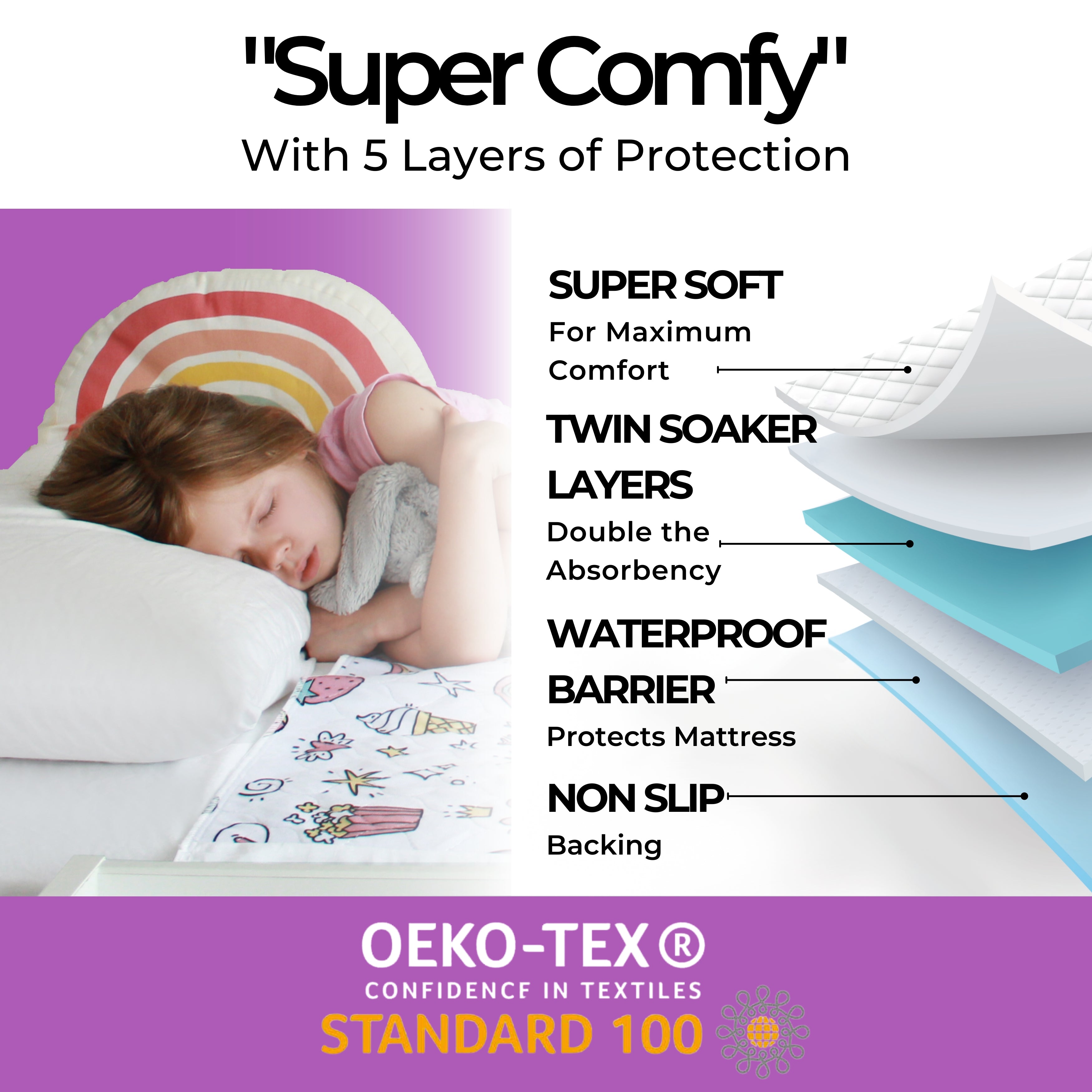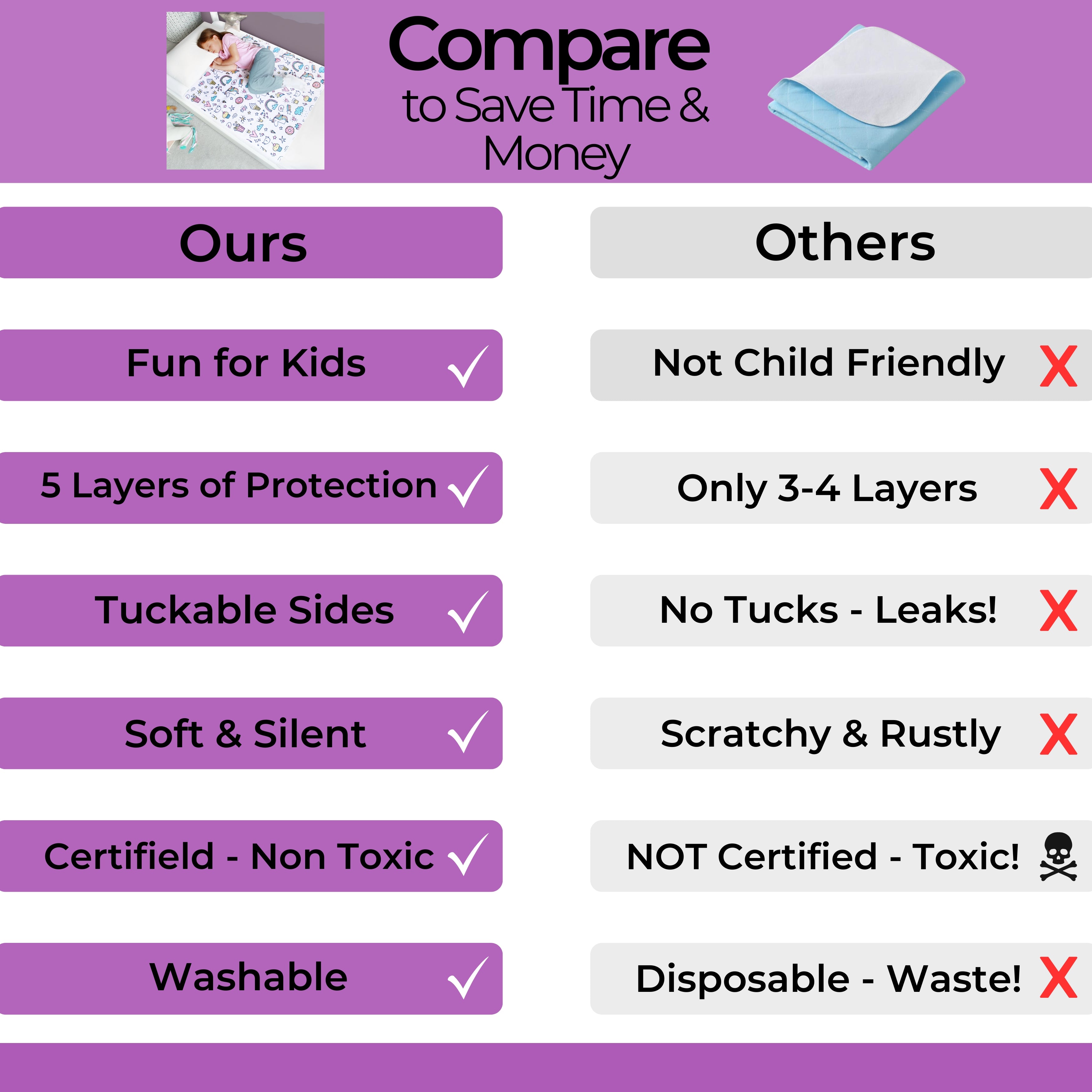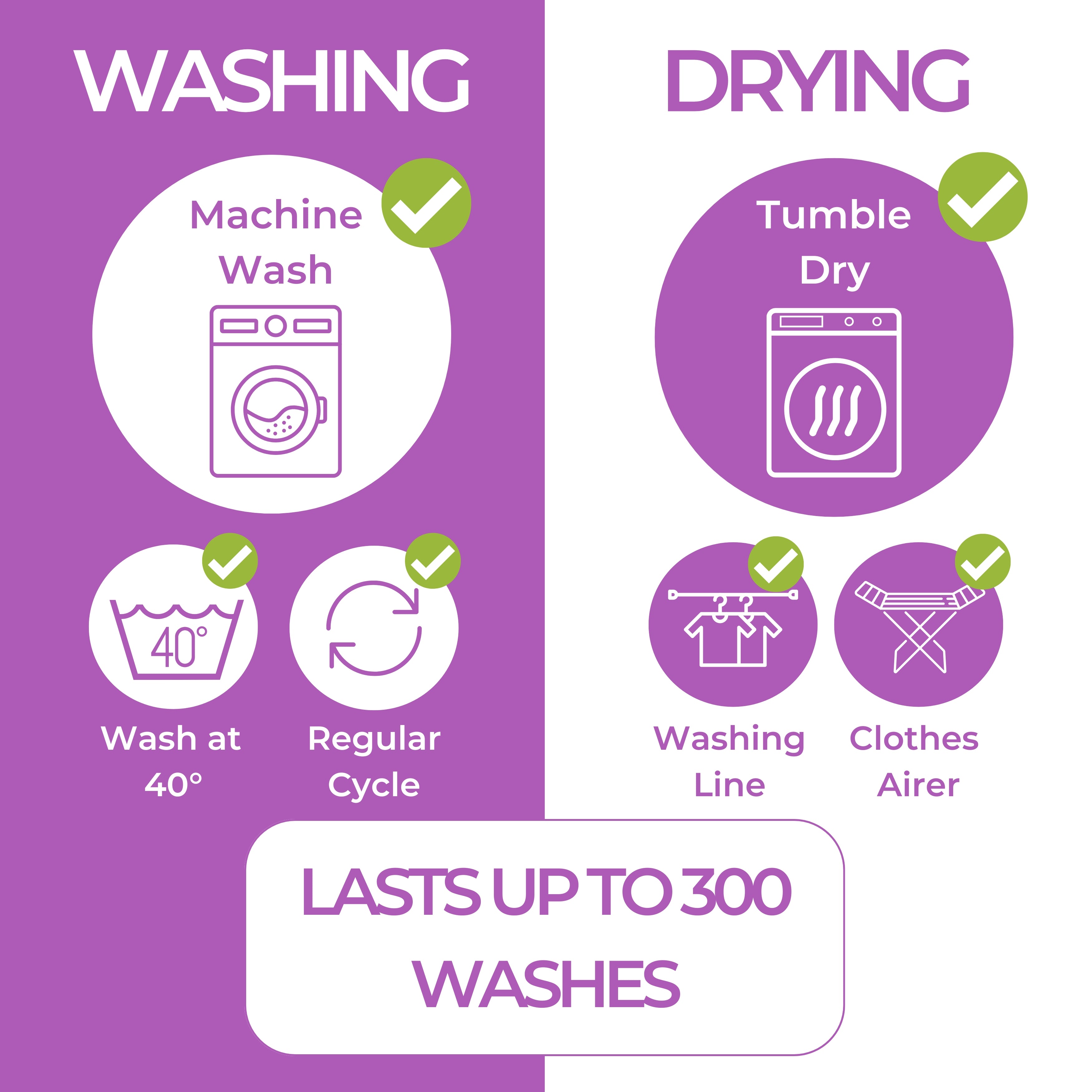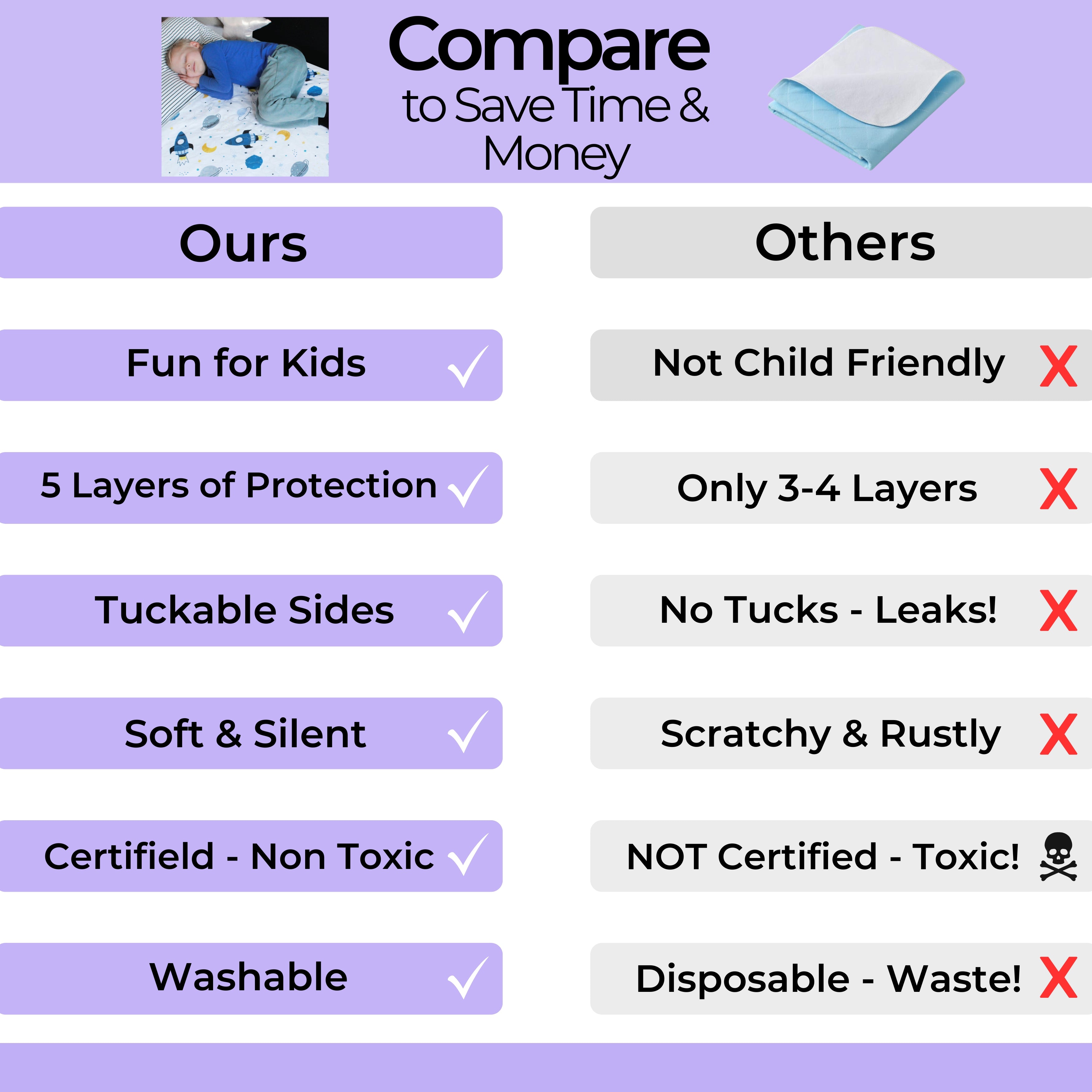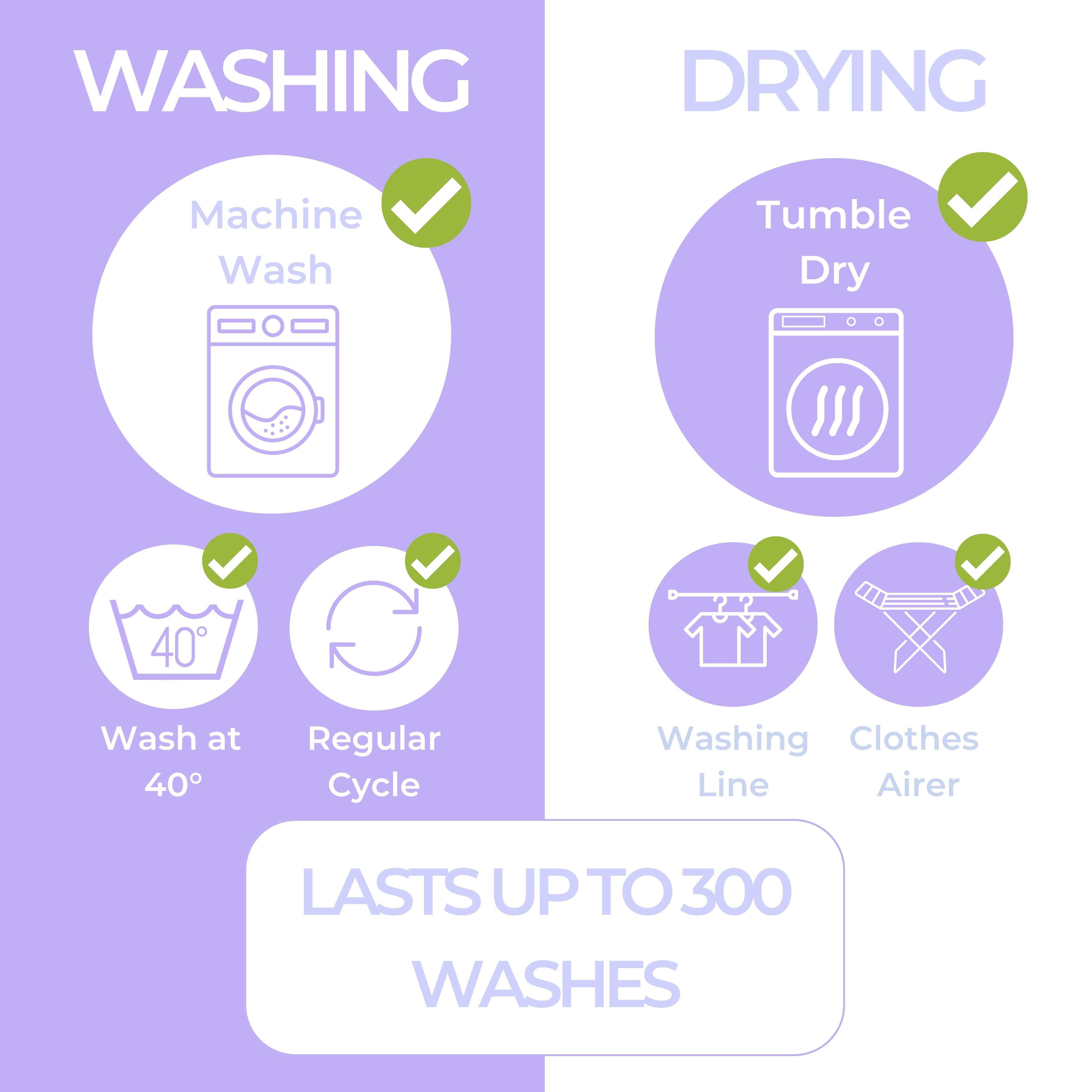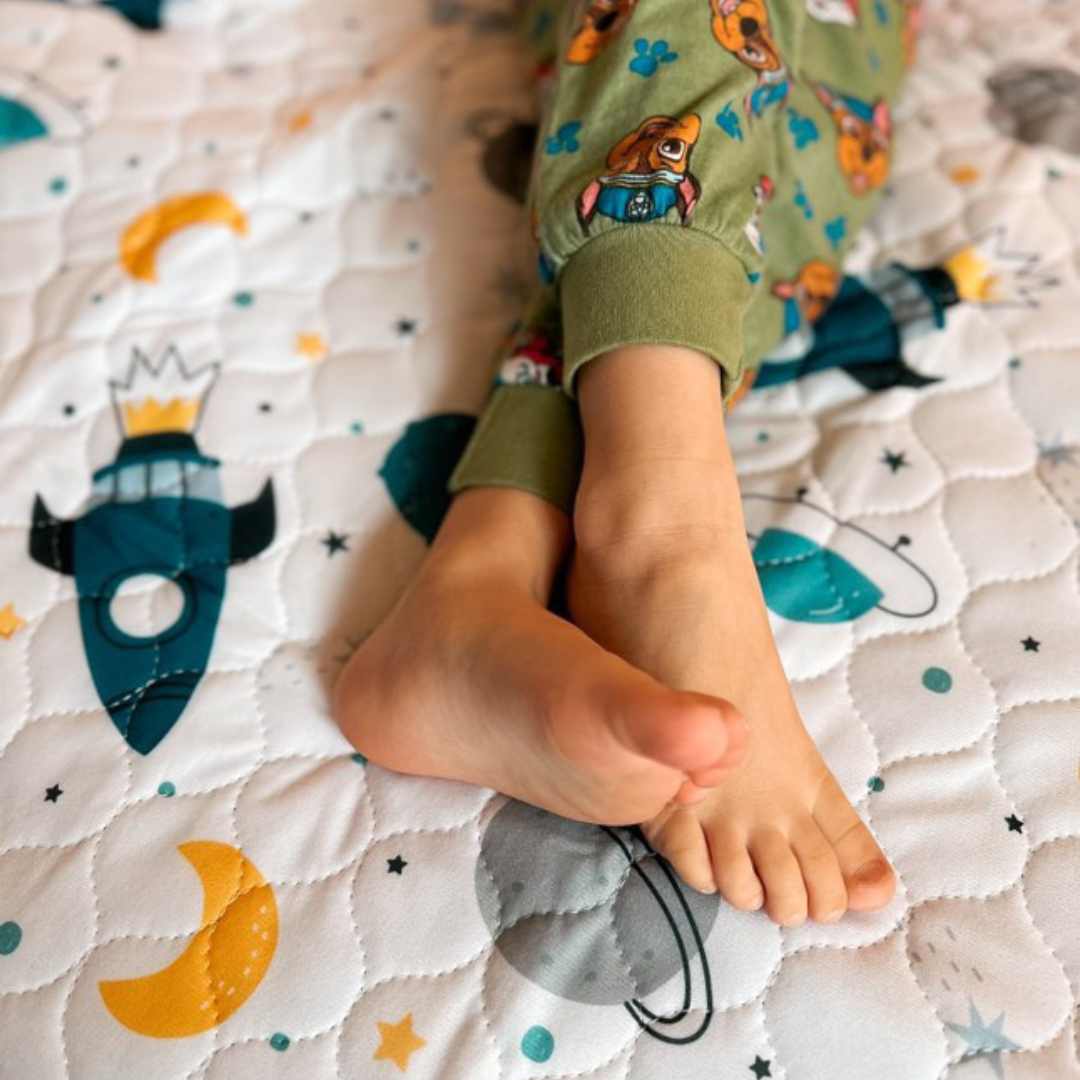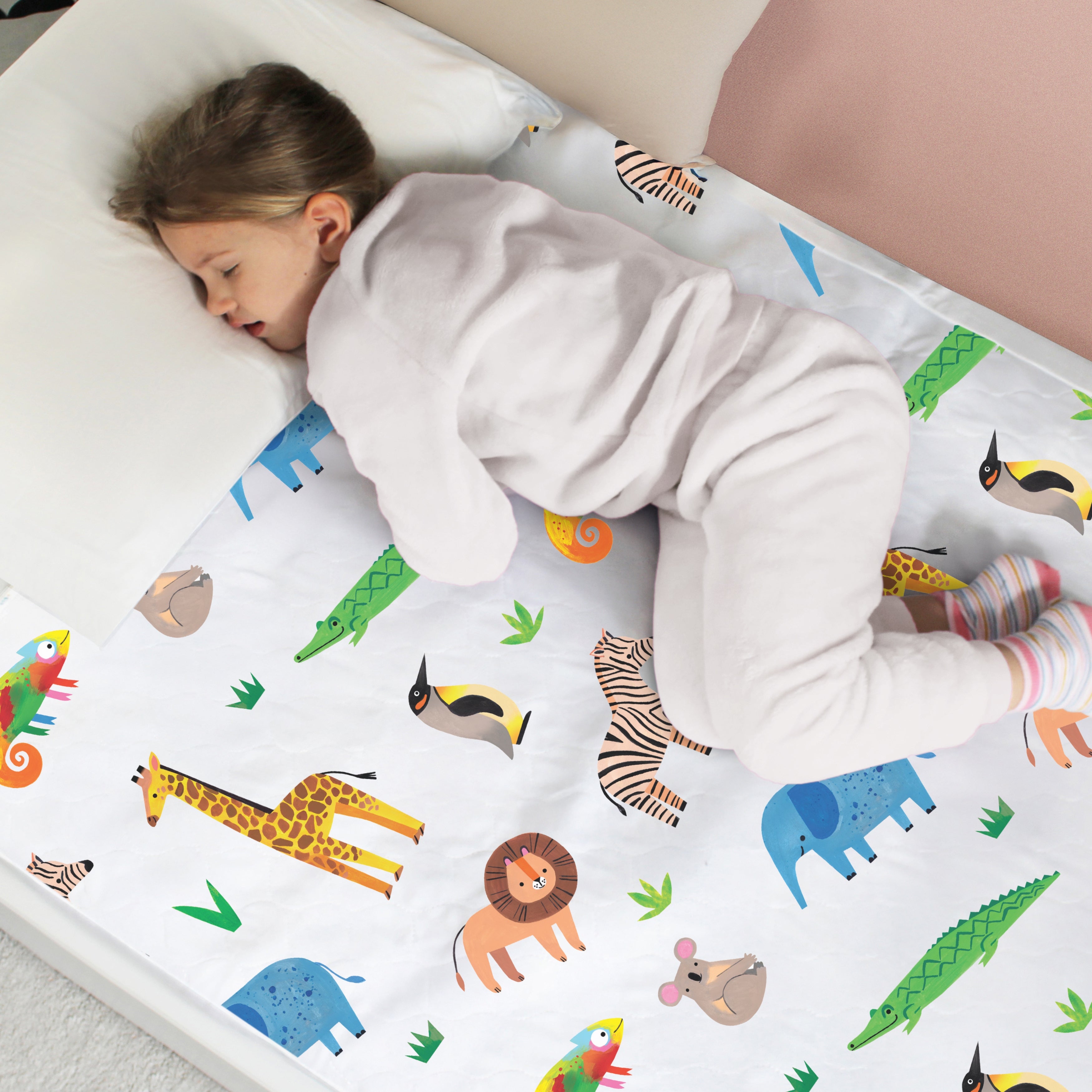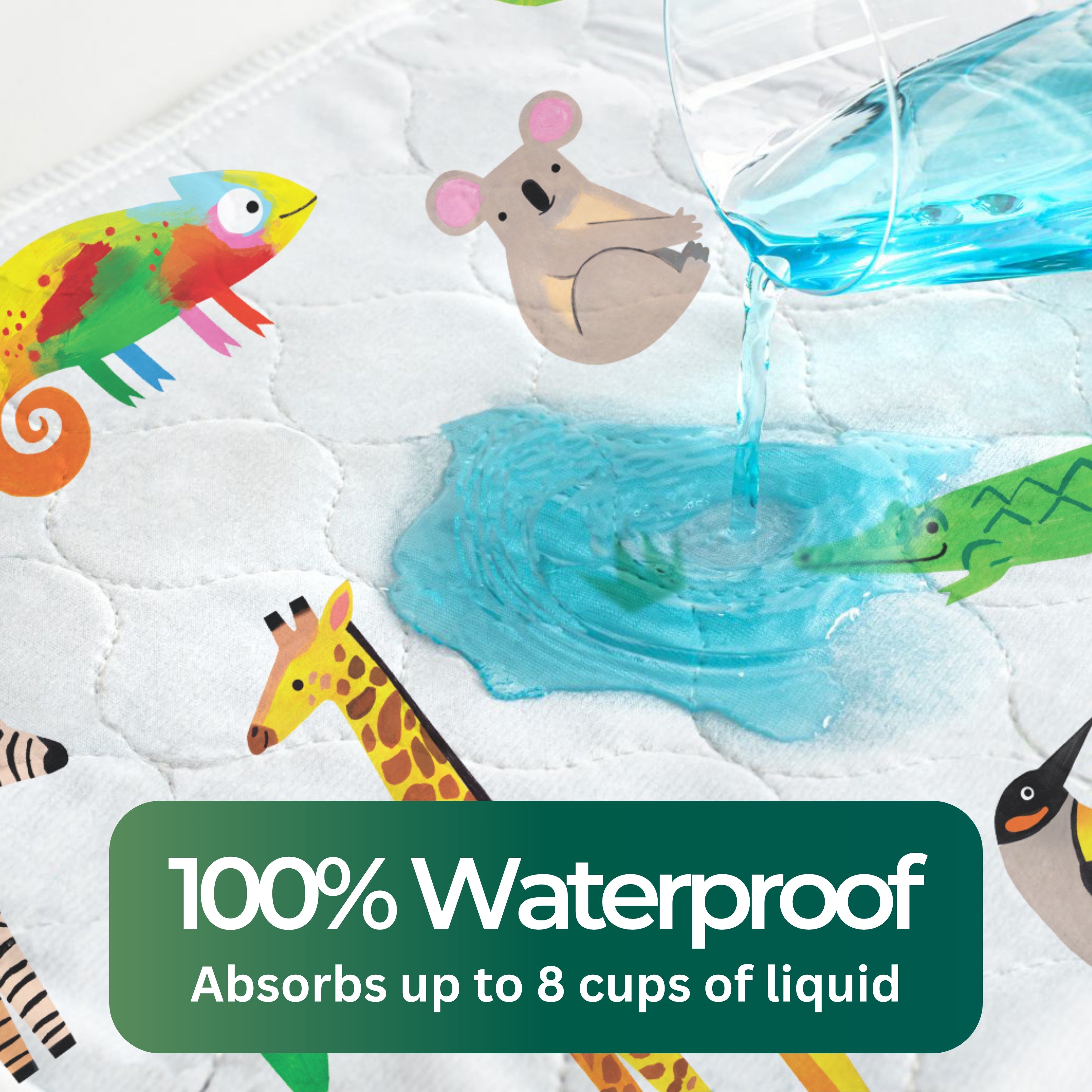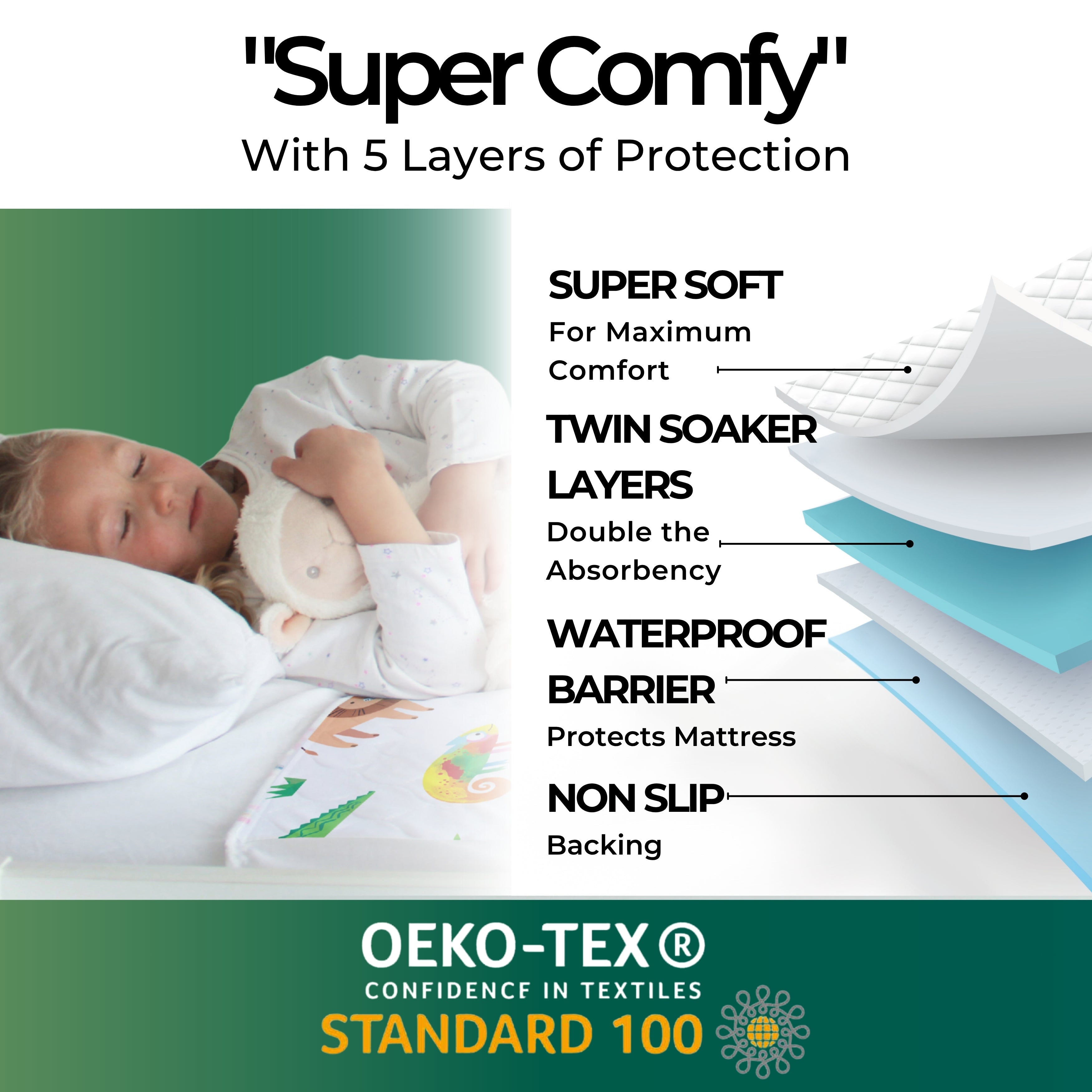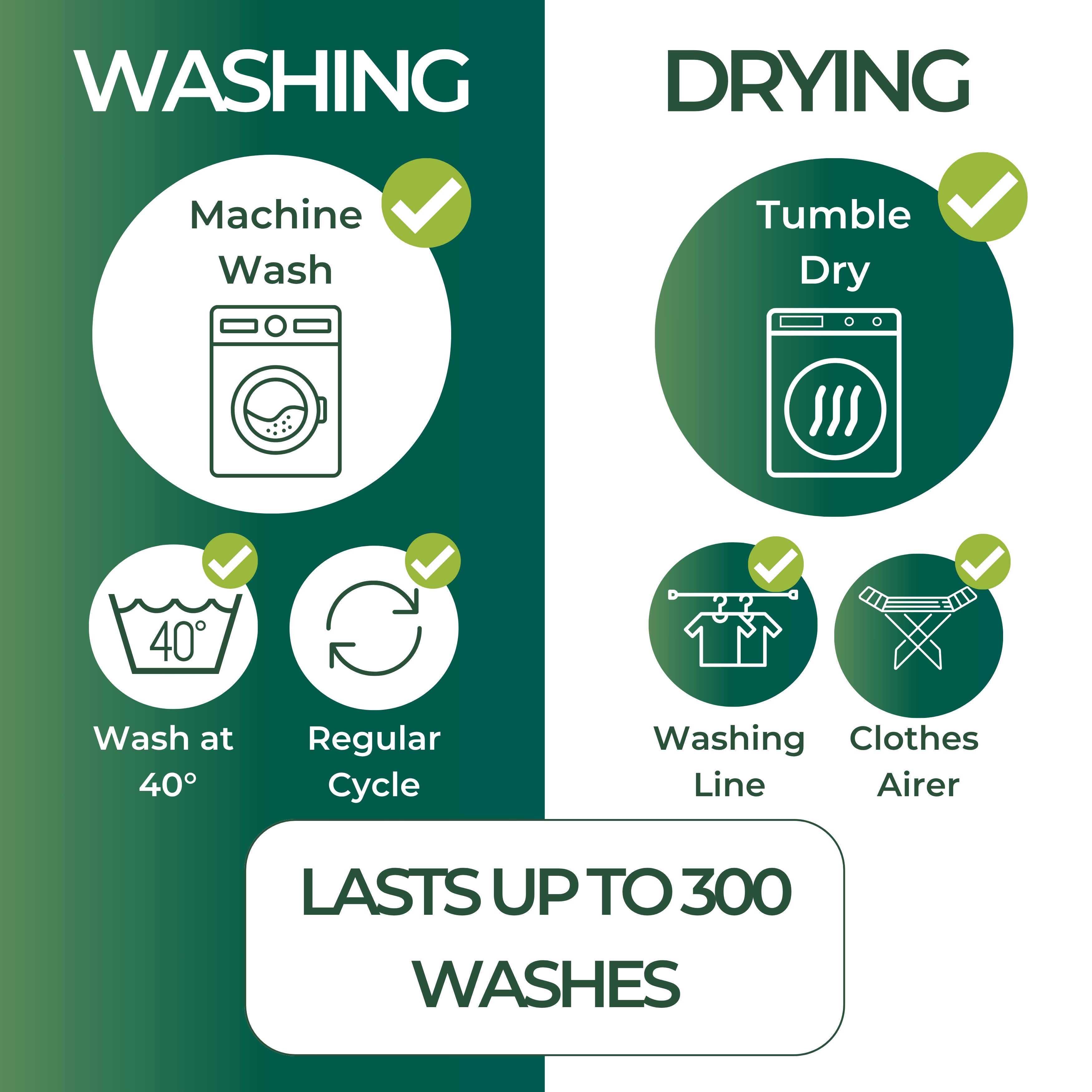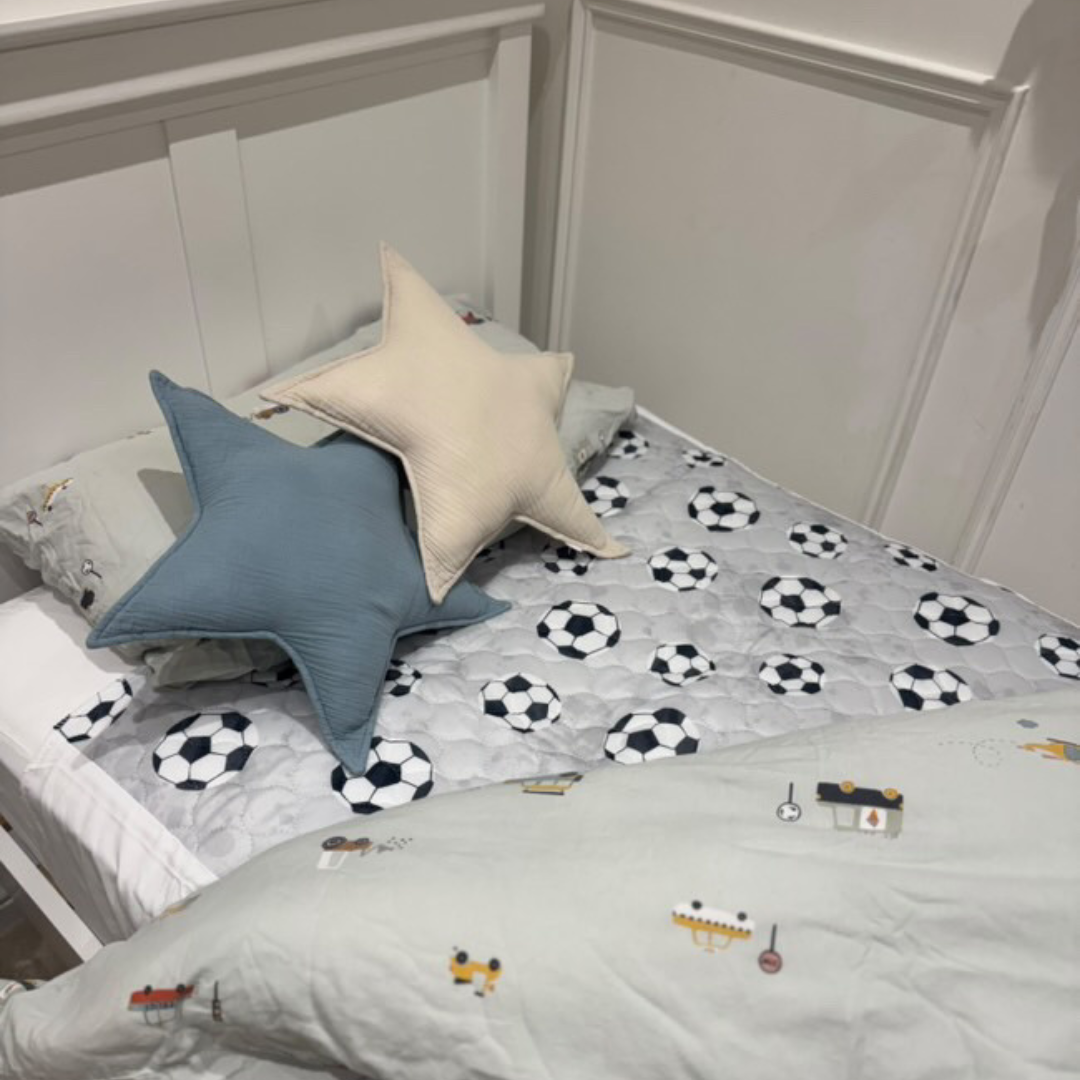
We're delighted to welcome Sue Welby, founder of Little Life Steps, to the Hygge Sheets blog. Many parents know her as “Super Sue” or “the wee and poo lady,” thanks to her decades of experience helping families navigate big childhood milestones like toileting, sleep, and behaviour.
In this guest post, Sue shares her expert advice on one of the trickiest parenting moments removing the nighttime nappy. She explains why the words we use with our children matter so much, and how small language changes can boost their confidence and make the journey to dry nights calmer for the whole family.
If you’re starting (or even just thinking about starting) nighttime potty training, Sue’s tips and practical tools will help you feel more prepared and supported.
Choosing the right words when removing the night time nappy.
Ever wondered why some nights go smoothly while others end in soggy sheets? It’s not just about removing the nappy, it’s about preparation, building their confidence, making sleep a priority, and using words that support rather than shame. The words we use, and how we talk about bed wetting (or what I call sleep wetting as it happens when children are sleeping), can make a huge difference to how they feel about themselves and their bodies.
As a parent specialist, I’ve seen first-hand how small language changes can turn bedtime battles into calm, positive moments.
In a recent live I did with Catherine from Hygge Sheets, we talked all about this, and so many parents said how reassuring it was to hear practical tips and fresh ideas.
One mum summed it up perfectly
“I absolutely loved your live, it was so practical and genuinely helpful. The idea of using my child’s interests, like calling water a ‘potion’ because he loves Harry Potter, was brilliant. I also loved how you explained changing the language so it’s not about them being naughty, but about their “cheeky bladder” doing its own thing. Once you know, it makes so much sense”
So, here are 5 key things to remember when you’re supporting your child to move on from night-time nappies and some language swaps you can start using tonight.
1️⃣ Sleep comes first
Before you think about removing the nappy, make sure your child’s sleep is settled. Sleep plays a huge part in night-time dryness, children who aren’t sleeping well often produce less of the hormone (vasopressin) that tells their kidneys to slow down wee production overnight.
Little Tip to help: If your child wakes up a lot, focus on improving sleep first. Once they’re sleeping well, they’re more likely to naturally develop night-time dryness.
2️⃣ Look for readiness signs
Instead of setting an age deadline, (parents often worry about this, “my child is 5 and still in nappies.” There is no race) look for signs that your child might be ready:
-
Are they waking up with a drier nappy?
-
Do they sometimes wake in the night to do a wee?
-
Do they do a big wee first thing in the morning?
These show they’re starting to connect with their bladder signals, even during sleep.
3️⃣ Talk about the bladder as a muscle
Children understand so much more when we make it relatable. Explain that the bladder is like a muscle, it needs practice to work well. Drinking plenty during the day helps to exercise the bladder so it can stretch and empty properly.
Fun fact. Animals have amazing bladders too and children can relate to animals.
An elephant’s wee could fill up a whole bath so they have to drink loads to keep their bladder strong. Little facts like these help children connect the dots and make it fun.
What fun animal toileting facts can your child find out?
4️⃣ Use positive language and avoid pressure
Language matters hugely and words have power.
I know from experience language tweaks can make a big difference in their success.
Using words that focus on progress rather than setbacks can help your child stay motivated to mastering sleep wetting.
It’s about teaching a growth mindset instead of a fixed mindset.
Here are some phrases to swap out and swap in:
🚫 Swap Out
“You need to stay dry tonight.”
“You are a big boy or girl now.”
“Don’t wet the bed again.”
“Not another wet bed”
✅ Swap In
“Let’s help your bladder stay happy.”
“Sometimes our bladder is cheeky at night, it does sneaky wees when we’re asleep.”
“You are listening to your body and helping it get stronger.”
“Let’s cast a spell, Abracadabra, we can banish the night time accidents” (some children this little bit of magic is enough to act as a placebo)
Also, never worry about your child feeling upset about an accident, it’s natural.
Let the feeling come out, reassure them it’s not their fault, and move on calmly.
5️⃣ Make it practical (and easy for everyone)
Practical tools make a huge difference. I always recommend Hygge Sheets for families, they save so much stress when there is a night-time accident. Also, because Hygge Sheets are waterproof yet soft, they help children feel secure like a safety net under a parent’s support.
Instead of stripping the whole bed at 2am, you just peel off the top layer and everyone gets back to sleep quickly. It keeps things low-pressure and protects your child’s confidence too.
If you’re starting night-time potty training, I genuinely believe Hygge Sheets are a must for any family and a lifesaver during the transition.
Final tip-Stay playful and connect.
Bring your child’s favourite interests into it, whether that’s superheroes, detectives, animals, or magic potions. This helps them feel ownership and makes the whole process less about pressure and more about adventure.
One little boy I worked with loved being a secret agent, so staying dry overnight became his special detective mission.
Another family used a “power water” chart to make drinking fun. The more fun and connection you add, the less stressful it is for everyone.
If you’d like gentle guidance and step-by-step support through any toileting process, here are some next steps.
-
Download my free printable Fun Ways to Increase Fluids Bundle here: https://www.littlelifesteps.com/funs-ways-to-increase-children-s-fluids-bundle
-
Read more tips on my Toileting Blog here: https://www.littlelifesteps.com/blog/categories/toileting
-
Check out my online course on bedwetting here: https://www.littlelifesteps.com/bed-wetting
You’ve got this. Night-time dryness is a journey, the right words and practical tools can make all the difference.
I’m always here to help.
Sue Welby the founder of Littlelifesteps.
A little about me.
Over the years, the families I’ve worked with have given me many names- Super Sue, the Wee & Poo Lady, Potty Princess, and most recently Sleepy Sue and yes, each one hints at what I do.
I help parents navigate the big milestones of early childhood, from sleep struggles and toilet learning to behaviour challenges and starting school. My approach is connected, fun, practical, and rooted in understanding children from their perspective so they can grow into their happiest, most confident selves.
With more than 40 years experience, I bring a rich background in childcare and parent support. I’m an NNEB-qualified nursery nurse, trained in infant massage and deeply passionate about connection and bonding. I’ve managed nurseries, trained teams, and written Ofsted-aligned policies. I also spent 14 years in the NHS, providing one-to-one and group support for parents. running health-promotion sessions in schools.
Whether I’m known as Super Sue, Potty Princess or Sleepy Sue, my goal is always the same. I want to give parents calm, confidence, and simple tools that work, so family life feels lighter and children can thrive.

